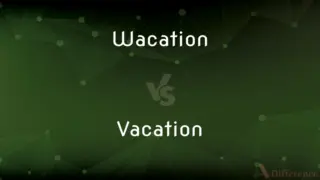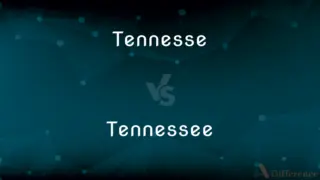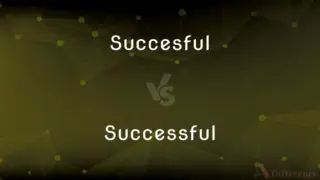Vilage vs. Village — Which is Correct Spelling?
By Tayyaba Rehman — Updated on March 25, 2024
"Vilage" is an incorrect spelling, while "Village" is the correct spelling denoting a small community or group of houses in a rural area.
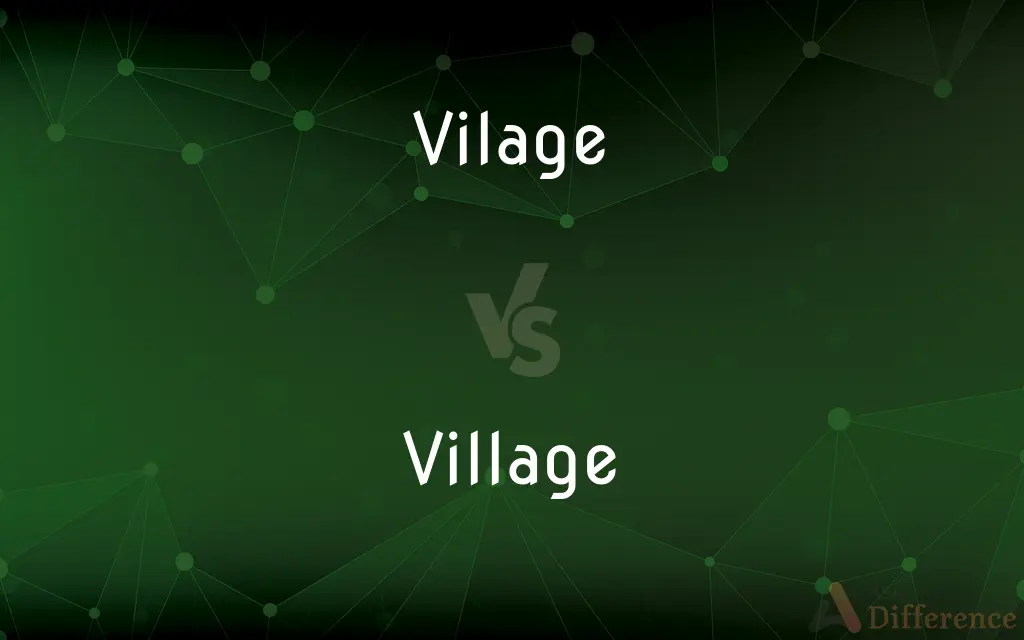
Table of Contents
Which is correct: Vilage or Village
How to spell Village?

Vilage
Incorrect Spelling

Village
Correct Spelling
ADVERTISEMENT
Key Differences
"Vilage" with one 'l' is like a house missing a wall.
Always double-check for double 'l's, just as you would double-check a village map.
Remember "Village" has two 'l's like a small community has many houses.
Think of the second 'l' as the anchor that grounds a village.
Associate "Village" with stability, emphasizing the importance of both 'l's.
ADVERTISEMENT
How Do You Spell Village Correctly?
Incorrect: He painted a beautiful scene of a vilage by the river.
Correct: He painted a beautiful scene of a village by the river.
Incorrect: The vilage was quiet and serene.
Correct: The village was quiet and serene.
Incorrect: Their vilage is known for its annual harvest festival.
Correct: Their village is known for its annual harvest festival.
Incorrect: The vilage market is held every Friday.
Correct: The village market is held every Friday.
Incorrect: She visited her grandparents in the vilage every summer.
Correct: She visited her grandparents in the village every summer.
Village Definitions
A village is a collection of houses and associated buildings in a rural area.
The village was surrounded by vast farmlands.
A village is a human settlement, often characterized by community ties.
The village elders gathered for a meeting.
A village is a compact settlement smaller than a town.
We visited a quaint village during our vacation.
A village is a clustered human settlement or community, larger than a hamlet but smaller than a town (although the word is often used to describe both hamlets and smaller towns), with a population typically ranging from a few hundred to a few thousand. Though villages are often located in rural areas, the term urban village is also applied to certain urban neighborhoods.
A small group of dwellings in a rural area, usually ranking in size between a hamlet and a town.
In some US states, an incorporated community smaller in population than a town.
The inhabitants of a village; villagers.
A dense group of animal habitations
A prairie dog village.
A rural habitation of size between a hamlet and a town.
There are 2 churches and 3 shops in our village.
(British) A rural habitation that has a church, but no market.
(Australia) A planned community such as a retirement community or shopping district.
(Philippines) A gated community.
A small assemblage of houses in the country, less than a town or city.
A community of people smaller than a town
A settlement smaller than a town
A mainly residential district of Manhattan; `the Village' became a home for many writers and artists in the 20th century
A village can refer to inhabitants of such a settlement.
The entire village celebrated the festival.
In some contexts, a village implies a lack of modern facilities.
He grew up in a remote village with no electricity.
Village Meaning in a Sentence
The village square was the gathering place for local events.
The village nestled in the valley had breathtaking views.
The village elders gathered to discuss community matters.
She loves the peace and quiet of village life.
Children played freely in the village streets.
Every house in the village was decorated for the festival.
Local artisans sold their crafts at the village market.
The village well was a popular spot for fetching water.
The village church stood tall, its bell ringing every hour.
The village bakery was known for its homemade bread.
The village library was small but well-loved by residents.
The village pond was home to ducks and geese.
The village school had just one classroom for all ages.
She took a leisurely walk through the village paths.
The village inn offered a warm welcome to travelers.
A narrow bridge connected the village to the main road.
Each cottage in the village had its own unique charm.
Old traditions were still honored in the village.
The village fair attracted visitors from nearby towns.
Village Idioms & Phrases
The village green
A common open area within a village often used for gatherings and recreation.
The annual summer fair was held on the village green, bringing together all the residents for a day of fun.
It takes a village
This means that an entire community of people must interact with children for those children to grow in a safe and healthy environment.
Raising her children in a small village, she felt grateful for the community's support; truly, it takes a village.
Village idiot
An outdated and insensitive term historically used to describe a person with perceived foolishness or mental issues, often known by everyone in a small community.
In old stories, the village idiot was often a kind soul misunderstood by society.
Common Curiosities
What is the root word of Village?
The root word of "village" is the Latin "villa", meaning a country house or estate.
What is the pronunciation of Village?
"Village" is pronounced as /ˈvɪl.ɪdʒ/.
Which vowel is used before Village?
The letter "a" is often used before "village" as in "a village".
Why is it called Village?
The term "village" comes from the Latin "villaticus", meaning "of or pertaining to a farm or country estate".
What is the verb form of Village?
There isn't a verb form of "village"; it's primarily a noun.
Which preposition is used with Village?
Various prepositions can be used with "village" such as "in", "of", or "from", depending on the context.
Which conjunction is used with Village?
Any conjunction can be used with "village" as with other nouns, like "and", "but", or "or", based on the sentence structure.
Is Village an abstract noun?
No, "village" is a concrete noun because it refers to a tangible place.
Is Village an adverb?
No, "village" is not an adverb.
What is the singular form of Village?
The singular form is "village".
Is the word Village imperative?
No, "village" is not imperative as it's a noun.
What is the plural form of Village?
The plural form is "villages".
Is Village a countable noun?
Yes, "village" is a countable noun.
How do we divide Village into syllables?
Vil-lage.
What is the opposite of Village?
The opposite could be "city" or "metropolis" in terms of size and development.
What is the first form of Village?
The first form is "village" itself, as it's a noun and doesn't have verb forms.
What is the second form of Village?
"Village" is a noun and doesn't have a second form like a verb does.
What is the third form of Village?
"Village" is a noun and doesn't have a third form like a verb does.
Is Village a noun or adjective?
"Village" is primarily a noun.
Is Village a collective noun?
No, "village" is not a collective noun.
What part of speech is Village?
"Village" is a noun.
Which determiner is used with Village?
Determiners like "a", "the", "this", or "that" can be used with "village".
Is Village a vowel or consonant?
"Village" is a noun and not classified as a vowel or consonant. However, it starts with a consonant.
How is Village used in a sentence?
"The children played happily in the village square."
Is Village a negative or positive word?
"Village" is neutral; it can be perceived as positive or negative based on context.
Is the Village term a metaphor?
Not inherently, but it can be used metaphorically in certain contexts.
How many syllables are in Village?
"Village" has two syllables.
Which article is used with Village?
Both "a" (indefinite) and "the" (definite) can be used with "village".
What is a stressed syllable in Village?
The first syllable "Vil" is stressed.
What is another term for Village?
Another term for "village" is "hamlet".
Share Your Discovery
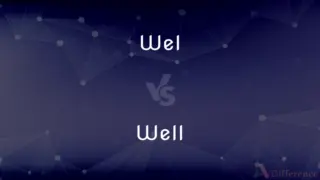
Previous Comparison
Wel vs. Well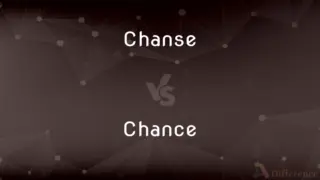
Next Comparison
Chanse vs. ChanceAuthor Spotlight
Written by
Tayyaba RehmanTayyaba Rehman is a distinguished writer, currently serving as a primary contributor to askdifference.com. As a researcher in semantics and etymology, Tayyaba's passion for the complexity of languages and their distinctions has found a perfect home on the platform. Tayyaba delves into the intricacies of language, distinguishing between commonly confused words and phrases, thereby providing clarity for readers worldwide.





























